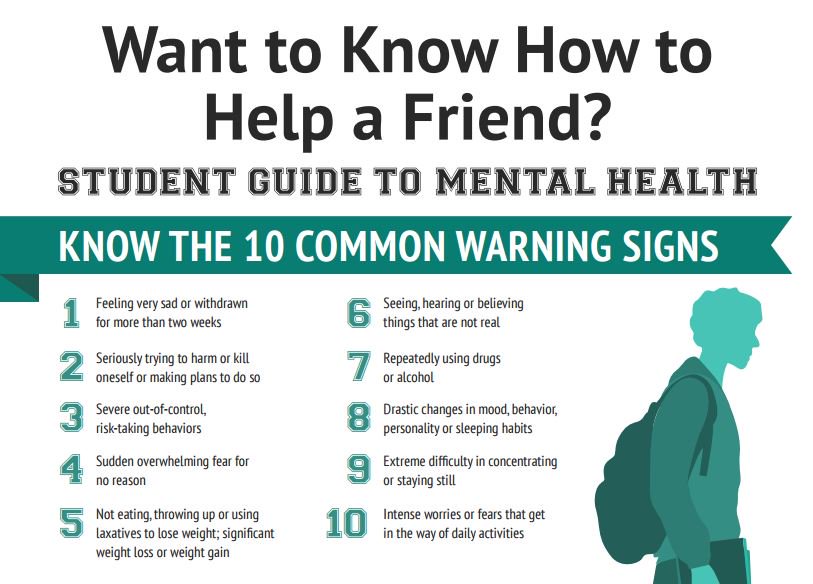Maintaining Mental Health

-
A Guide to Obtaining Insurance for Mental Health CareA guide from Money Geek to help you understand medical insurance and how to obtain mental health care with or without insurance.
Mental Health Assistance
- BC Student Health Wellness Center: The following services are available to BC students at no cost! To schedule an appointment on the main or Delano campus, please call 661-395-4336 or email BCStudentHealth@bakersfieldcollege.edu.
- A Licensed Marriage & Family Therapist, Clinical Social Worker and/or Intern can help you find solutions to problems with stress, relationships, anxiety, depression, fears, self-esteem, alcohol and drug issues, and adjustment to college life.
- Crisis intervention
- One-to-one brief psychotherapy, up to six visits a semester .
- Kern Behavioral Health & Recovery Services (KernBHRS): Provides a mental health access line at 1-800-991-5272, as well as other services.
- Pacific Health Education Cognitive Center Inc.: Tele-connection services are free to Cognitive Center clients and to the residents of Kern County.
- CCC Health & Wellness Resources: Providing California Community College students, faculty and staff with resources, best practices, and opportunities.
- National Suicide Prevention Lifeline: Help prevent suicide. The Lifeline provides 24/7, free and confidential support for people in distress, prevention and crisis resources for you or your loved ones, and best practices for professionals.
988 has been designated as the new three-digit dialing code that will route callers to the National Suicide Prevention Lifeline.
In English - 1-800-273-TALK (8255) or in Spanish - 1-888-628-9454 (These numbers will continue to work indefinitely, in addition to 988.)
- National Alliance on Mental Illness: NAMI helps millions of Americans who face mental illness every day.
List compiled by Bakersfield College's Office of Student Life.
Mental Health Apps
-
Vida HealthFrom Google Play. Whether you want to lose weight, better manage diabetes, reduce stress, or improve eating and exercise habits, Vida’s coaches, dieticians, therapists and medical providers can help you.
-
Vida HealthFrom App Store. Whether you want to lose weight, better manage diabetes, reduce stress, or improve eating and exercise habits, Vida’s coaches, dieticians, therapists and medical providers can help you.
-
Calm websiteFor sleep, meditation, and relaxation.
-
CalmFrom Google Play. Scroll down to see other helpful apps, too.
Mental Health Signs & Symptoms


